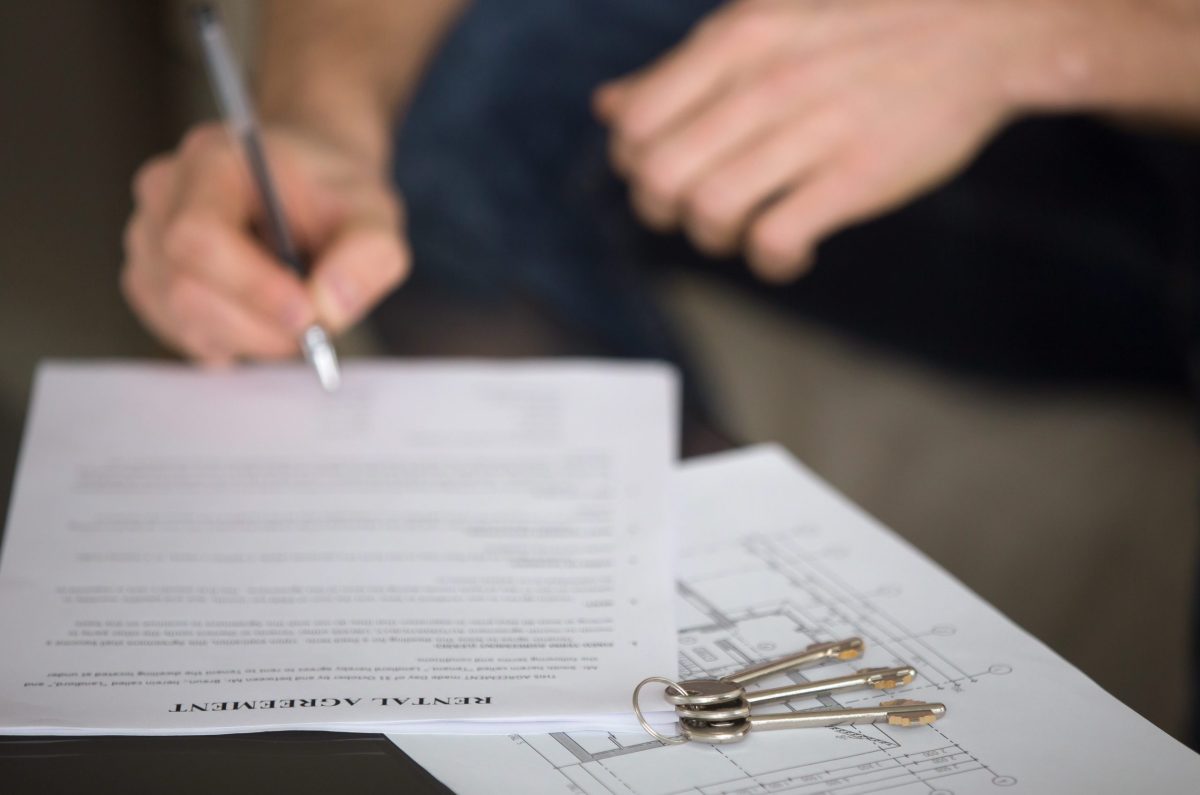Renting a property doesn’t simply appeal to tenants who may be waiting or hoping to get onto the property ladder, but it also offers flexibility for those downsizing or moving into a new area.
We arrange viewings for potential tenants that include everyone from young singles moving into their own place for the first time to mature couples who are downsizing. Although renting gives you greater flexibility than owning a property, it still takes time and money to find the right place and to move in, so it is worth putting some careful thought into finding somewhere that will suit you.
1) Before You Start
Get financially prepared and know the costs and permitted payments involved in renting before your start your search.
Before you move in you will need to pay a security deposit and one month’s rent in advance. Woolley & Wallis will also conduct some initial financial checks to establish that you can afford the rent and therefore will make a good tenant.
Other things to consider
How long do you want the tenancy for? A tenancy is usually a minimum of 6 months. If you are not sure, you can ask for a tenancy to be extended but remember there are costs involved in extending your fixed term tenancy agreement.
Start gathering documents that your agent will need to confirm your identity, immigration status, credit history and possibly employment status.
2) Find a Place to Rent
Establish your criteria for your rental property; so that your search is more productive.
Woolley & Wallis offers several ways to find rental property that is available now. Use our rental search and adjust the filters and advanced features to narrow down the search to find exactly what you want where you want.
Sign up for property alerts to find out about new to market rental properties. This gives you access to the My Move part of the website where you can save favourite properties.
Go into your nearest Woolley & Wallis office and speak to our local Lettings experts who will help you find your rental. You can discuss your needs with them, and they can advise the best areas to match your criteria.
3) Budget for your Tenancy
We will help you review the ongoing costs of running a rental property. These costs can be significant especially when you first set up a new tenancy:
- Your refundable holding deposit of one weeks rent per tenancy.
- Your first month’s rent.
- Your security deposit which will be a total of five weeks rent per tenancy where the rent is under £50,000 per year, or six weeks rent per tenancy where the rent is £50,000 or over per year.
- Other initial outgoings might include the purchase of furniture if you rent an unfurnished or part furnished property
Once you have moved in, you will have ongoing costs:
- Your monthly rental payments.
- Your council tax payments. Sometimes these may be included in the rent.
- Your utilities including gas, electricity, and water. Sometimes these may be included in the rent.
- Phone bills, broadband and line rental.
Make sure you take all these costs into account when you’re thinking of renting a property. Remember too that it’s important to keep paying your rent, on time and in full, as this may affect your credit score.
4) Arrange your rental
The application process explained from what you will need to sign, and what helpful documentation you can expect.
- Read your written tenancy agreement carefully to understand your rights and responsibilities.
- Agree the inventory report with your landlord. Photos will be taken by us to which will make things easier if there is a dispute about the deposit at the end of the tenancy.
- Remember to take meter readings when you move in.
- Keep our contact details to hand in case you have any queries we can help with. the landlord or agent and you keep them handy. These should be given to you.
Documents We will Provide:
- A copy of the guide ‘How to rent’.
- A gas safety certificate.
- Deposit paperwork.
- The Energy Performance Certificate.
- A record of any electrical inspections.
5) Tenancy responsibility
A tenant and a landlord have specific legal responsibilities to each other. Understand what they are and what to expect.
Look after the property
Keep it clean and take care of any furniture and appliances. Don’t attempt any repairs or decorating without first contacting us to seek permission and guidance. If you notice any issues, contact our lettings team to arrange repair.
Regularly test smoke alarms
Get familiar with how the boiler and major appliances work. Find out where the stop cock, fuse box and any meters are located.
Please be considerate to the neighbours. Anti-social behaviour could get you evicted, so just be considerate of the neighbours.
Your Landlord’s Responsibilities
Your Landlord/Agent has responsibilities to you as a paying tenant:
- Maintain the structure and exterior of the property.
- Insure the building to cover any damage from flood or fire.
- Install smoke alarms on each floor.
- Fit carbon monoxide alarms in rooms using solid fuels (coal or wood for example)
- Deal with problems related to water, electricity, and gas supply.
- Maintain appliances and furniture they have supplied.
- Carry out most repairs. If something is not working, report it to the landlord (or their agent) as soon as you can.
- Arrange an annual gas safety check by a Gas Safe engineer (where there are any gas appliances).
- Give a minimum of 24 hour’s notice of visits for repairs or maintenance.
- Get a licence for the property if it is a licensable property. This applies to properties where you rent a room in a shared house known as HMOs.
6) Extend or end tenancy
Wanting to extend or end your tenancy early? Get all the information you need you know before doing so.
Should you wish to extend your tenancy after any initial fixed period, there are a number of important issues to consider.
- Do you want to sign up to a new fixed term? There will likely be costs for this, check with us first.
- It is sometimes possible to be on a ‘rolling periodic tenancy’. This means you carry on as before but with no fixed term – you can leave at any time by giving one month’s notice. Or your landlord can end the contract at two months’ notice.
- Your landlord might want to increase your rent. Your landlord can increase your rent by agreement, or as set out in your tenancy agreement, or by following a procedure set out in law.
Ending Your Tenancy
If you or the landlord want to end the tenancy, there are things that both landlords and tenants must do at the end of the tenancy:
Giving Notice
It is a legal requirement for landlords to give you proper notice if they want you to leave. Normally, the landlord must allow any fixed period of the tenancy to have expired, and they must have given at least two months’ notice. Your tenancy agreement should say how much notice you must give the landlord if you want to leave the property – one month’s notice is typical.
Return of deposit
Try to be present when the property is inspected to check whether any of the tenancy deposit should be deducted to cover damage or cleaning costs (a ‘check-out inventory’).
If you do not agree with proposed deductions, contact the relevant deposit protection scheme.
Outstanding Rent
Make sure that your rent payments are up to date. Do not keep back rent because you think that it will be taken out of the deposit.
Outstanding Bills
Do not leave bills unpaid. This might have an impact on your references and credit rating.
Clean Up
Remove all your possessions, clean the house, take meter readings, return all the keys and give a forwarding address.
The landlord is entitled to dispose of possessions left in the property after, typically, 14 days.
7) Moving out
When your tenancy is due to end, find out what you need to do before moving out of the property.
Cleaning costs and unpaid rent are the top reasons why deposit money is withheld when a tenant moves out of a rented property.
So before you move out, make sure you have paid any remaining rent that is due. Keep in mind that if you are paying by cheque, it will take a few days for the payment to clear, so pay in plenty of time so that by move out day all monies have cleared and no rent is owed.
Give the property a thorough clean before you leave so it is in ‘move in’ condition for the next tenant.
If you have rented a property that is full or part furnished, inspect the furniture and check for any damage.
If you have caused any accidental damage, then do get it repaired professionally.
Tips to help avoid problems:
- Check the property against the condition report from when you moved in.
- Compare the property now to any photos taken at the start of the tenancy.
- Take photos when you leave.
Don’t forget to give your energy suppliers plenty of notice that you are moving out so they can organise a final bill. It is also a good idea to take meter readings on your final move out day for your records.
Inform any other suppliers that you are moving out such as Phone, Internet, or TV.
Consider redirecting your mail and leaving a forwarding address with your us.

Talk to a
Lettings Expert
We have offices covering Dorset, Wiltshire and Hampshire. For more information on our renting process get in touch with our Lettings team.
Thinking of selling?
Request a valuation
The sale process begins with getting an accurate idea of your property’s true value. Fill out the form below to tell us a little about you and your home and a member of our sales team will be in touch at a time that suits you.
Register with us
for our latest properties
Sign up in seconds to jump the queue and hear about our properties before anyone else.

